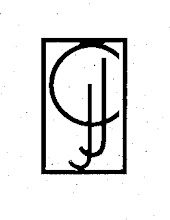 Premarin hit my radar a while ago in a New York Times series on menopause. It’s a popular hormone replacement that’s been on the market for women since 1942.
Premarin hit my radar a while ago in a New York Times series on menopause. It’s a popular hormone replacement that’s been on the market for women since 1942.When the series was originally published, new research was making big news: For some women, Premarin was actually doing more harm than good. For me, the bigger news was that the drug, whose key ingredient is extracted from the urine of pregnant mares, had always harmed the horses who provided the product.
Upon further investigation, I learned what “isolated from horse urine” really meant:
Scores of pregnant mares are forced to stand 24/7 in a space not much larger than their bodies and are saddled with urine-collecting equipment. Once they produce a foal, they are made pregnant again and the foals are “removed”—a mere byproduct of the Premarin industry.
As my outrage mounted, I happened upon an article on the Web indicating that Premarin was no longer being manufactured. Whew! Was I ever relieved—not only for the horses, but for myself as well because I wasn’t sure how to take up the cause.
However, now I’ve learned that whatever it was I’d read was wrong.
Pfizer is still manufacturing P
 remarin and its family of drugs, including Prempro, and doctors are still prescribing it. What’s more, coming soon is Aprela, Pfizer’s new drug for osteoporosis which also relies on the urine of pregnant mares for its effectiveness. It awaits FDA clearance.
remarin and its family of drugs, including Prempro, and doctors are still prescribing it. What’s more, coming soon is Aprela, Pfizer’s new drug for osteoporosis which also relies on the urine of pregnant mares for its effectiveness. It awaits FDA clearance.We all know that animals are sacrificed in laboratories in the name of drug development for our well-being. But how many are also sacrificed for the manufacturing of those drugs? And are we okay with this?
Here’s one woman’s remarks pulled from the NYT article:
I don’t care what symptoms I get, I’m not taking hormones. I have, right now in my pasture, three lovely mares that were rescued from a Premarin factory. Most people don’t know Premarin is made by cooping up mares in a dark, cramped stall, no exercise or socialization (these are
 herd animals by nature), keeping them pregnant, and when the foal is born – it is slaughtered right in front of its mother, so she can be re-impregnated right away. When the mother’s feet give out from standing still her whole life, she is slaughtered too. It’s horrific. One of my mares had a foal last spring and at first, didn’t pay attention to it; as soon as she realized she would get to keep this foal, she was the most attentive and nurturing mom you could imagine. All of them are outside now, cropping the spring grass and playing together. Like they should be. And this summer, they will be therapy horses helping the disabled children I work with.
herd animals by nature), keeping them pregnant, and when the foal is born – it is slaughtered right in front of its mother, so she can be re-impregnated right away. When the mother’s feet give out from standing still her whole life, she is slaughtered too. It’s horrific. One of my mares had a foal last spring and at first, didn’t pay attention to it; as soon as she realized she would get to keep this foal, she was the most attentive and nurturing mom you could imagine. All of them are outside now, cropping the spring grass and playing together. Like they should be. And this summer, they will be therapy horses helping the disabled children I work with.There’s wind of Pfizer pulling its contracts from the North American stables that supply mare urine and moving the Premarin business to the European and Asian horse markets—where more profit may be had by all because the pesky byproduct of the operations (the foals) can be turned around quickly as a delicacy food item.
Plant-based alternatives to Premarin exist. But many doctors prescribe only what their favorite drug peddlers encourage them to.

I haven’t yet figured out what to do about Premarin except spread the word. Inform and educate the sisterhood. Close demand for the drug one person at a time. It’s the least I can do for our four-legged sisters.
Interested in reading more? Check out these sites:
Equine Voices Rescue & Sanctuary
International Fund for Horses
United Animal Nations
[Pics, top to bottom, from Mealrigg Hall Stud, Windsong Stud, Cosmopolitan Horse Farm, and Google Images.]



No comments:
Post a Comment